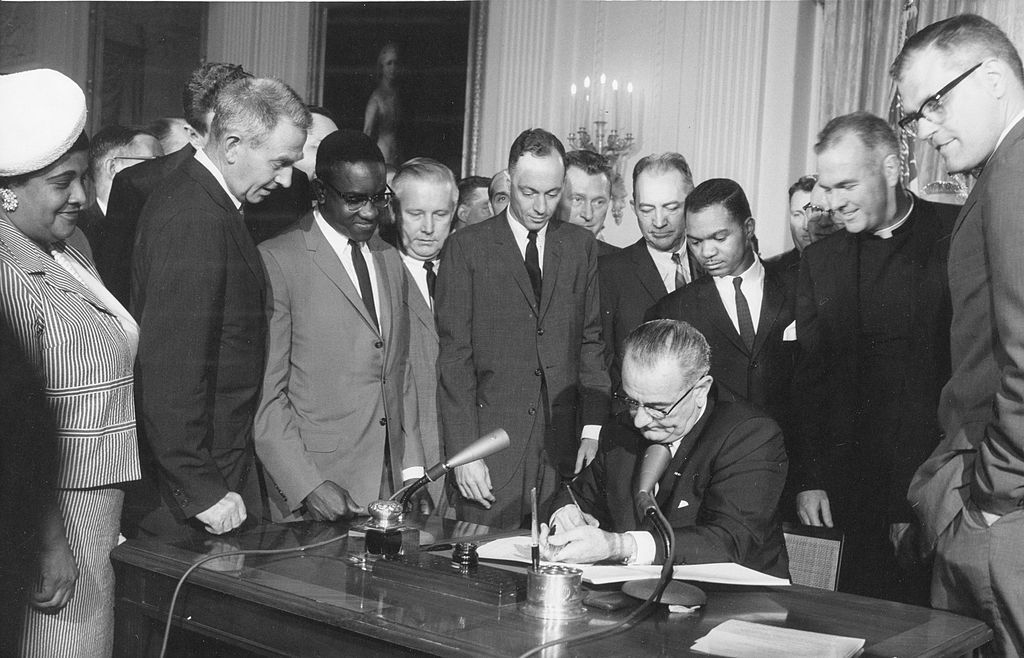In mid-May, Verizon followed the course of over a dozen major U.S. companies in rolling back their diversity, equity and inclusion practices—eliminating DEI from key tenets of their operations, including erasing DEI references from training material, ending bonuses and goals related to increasing the percentage of women and minority workers, and downsizing their human resources department.
Verizon’s decision, along with that of other prominent U.S. companies like T-Mobile, Disney and Comcast, reflect the impact of Trump’s inaugural executive order attacking what he deems “Radical and Wasteful DEI Government DEI Programs and Preferencing.”
Executive Order 14151 came as an assertive nail in the coffin for DEI programs at the beginning of Trump’s second term: The Department of Education dissolved their DEI council, along with other notable federal organizations such as the CIA and FBI, among others.
However, companies like Verizon are part of the private sector—executive orders do not directly apply to them, meaning, they have no obligation to roll back on DEI.
“Executive orders are not laws,” Alphonso David, CEO of the Global Black Economic Forum, emphasized at a California Public Utilities Commission press briefing, “Retreating From DEI Won’t Win Over the Public.” “They can be issued by executives, both at the state and the federal level, but executive orders have to comply with the federal statutes and the U.S. Constitution. So I believe it’s important for us to remain grounded that there is no law that prohibits diversity, equity and inclusion as a principle or practice.”
The very existence of DEI is grounded in decades of legal precedent that enshrine the right to equitable working conditions and practices in federal law. “Part of the value of diversity, equity and inclusion that many people forget is that it is a product of the 1960s [Civil Rights Movement]; the reason why we have [DEI] is because the laws were passed in the 1960s prohibiting discrimination,” David explained during interview with Ms. following the press briefing. Most notably, the 1963 Equal Pay Act mandated equal pay regardless of employees’ sex, and Title VII of the Civil Rights Act of 1964 outlawed employment discrimination on the grounds of race, sex, religion or sexuality.
Trump’s executive order does not change the status of decades of civil rights work—yet companies are crumbling under incentivized pressure from the federal government sparked by the January order.
Instead of merely “quiet-quitting” DEI, Verizon was motivated by a $20 billion deal with the Federal Communications Commission (FCC) to buy Frontier Communications in exchange for ending their DEI policies. T-Mobile made a similar deal with the FCC in order to acquire Lumos.
Though companies think they are sacrificing DEI measures in exchange for maximized profit, David finds their actions “short-sighted” in terms of how these businesses will continue to operate in relation to the government. “What is perplexing is that they are allowing government to interfere with free enterprise in the context of diversity, equity and inclusion,” David questioned, “without understanding the collateral consequences on free enterprise generally.”
Businesses are putting themselves in the position to rely on government approval for business action. “What happens when the government says—you’re not allowed to invest your money in certain countries, even though we are allies with those countries, you’re not allowed to invest your money with women, with people of color. What happens then?” David asked.
It’s important for us to remain grounded that there is no law that prohibits diversity, equity and inclusion as a principle or practice.
Alphonso David
In addition to relinquishing their free-market power, companies also risk putting their profits in jeopardy by shedding DEI policies. Companies that engage in DEI initiatives have proven themselves more profitable than those that lack these practices. A 2020 report from McKinsey estimated that companies in the top quartile for “ethnic and cultural diversity” were 36 percent more profitable than those in the bottom quartile. With regard to gender, companies with a greater number of women executives are also more likely to surpass more male-dominated enterprises. “A substantial differential likelihood of outperformance—48 percent—separates the most from the least gender-diverse companies,” the report details.
These findings may be attributed to the diverse perspectives brought in by pro-DEI companies, in addition to a consumer preference for socially responsible companies. Research from Oxford University shows a 16 percent increase in long-term sales with the advent of inclusive marketing campaigns. Another study by Kantar contends that three-quarters of global consumers say that DEI initiatives (or their absence) impact their purchasing choices.
Consumer support of DEI-driven companies likely contributes to the increased profitability of more inclusive companies, said David. “The vast majority of consumers are demanding, and have been demanding for a long time, that brands stand for a purpose, and that businesses and their corporate citizens contribute to social good.”
Despite Trump’s order, a number of prominent U.S. companies are still engaging with DEI practices. Shareholders at Apple, Microsoft and JPMorgan Chase, among others, have rejected conservative-led shareholder proposals to eliminate the company’s DEI programs. Ninety-seven percent of Apple shareholders voted against these efforts, accompanied by a 98 percent shareholder disapproval rate at Costco.
Along with boosting profitability, DEI initiatives have significant positive impacts within workplace environments. Business and psychology studies have proven DEI-initiatives foster a more positive working environment for employees by reducing burnout, supporting open communication and using inclusive language. In the healthcare industry, studies indicate patients fare better when treated by a more diverse treatment team.
The profitability of DEI in a workplace should not be a surprise considering that workplace diversity is a practically held business standard. Beyond concepts like racial and gender diversity—common tenants of DEI—workplace diversity generally implies hiring employees with a wide array of skills and experiences. “When you look at the concept of diversity, companies that have embraced it for decades understand its value,” David explained. “Perfect example is, if you are building a new product or trying to expand in a new market, if you’re only talking to yourselves, you will not be in a position to actually acquire that new market.” DEI is far from a new, cultural concept. It’s a pillar of business.

Another indisputable factor: Legal and historical precedent clearly support the legitimacy of DEI initiatives. From the Civil Rights Act of 1964 to contemporary examples of inclusive efforts made by universities, companies and various organizations, it is clear that DEI had been a core principle of U.S. democracy, education and economic policy.
According to the National Urban League’s 2025 State of Black America report, the Trump administration’s efforts to dismantle DEI “mark a dangerous slide toward authoritarianism — threatening to impose a uniform education system and a homogenous workforce that sidelines anyone who doesn’t fit a narrow, exclusionary mold. If left unchecked, they risk reversing decades of progress that have made America more dynamic, competitive and just.”
Ultimately, DEI initiatives strive to provide greater opportunities for a diverse group of workers to access jobs and thrive in their chosen careers. But even beyond that critical goal, the evidence is clear that there are strong economic and social incentives for businesses to protect and enhance these essential programs.
Great Job Alex Lalli & the Team @ Ms. Magazine Source link for sharing this story.




